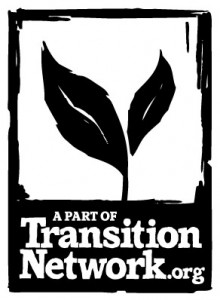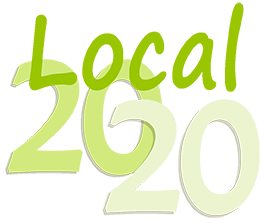Today, Local 20/20 is an incorporated 501(c)3 non-profit in East Jefferson County, actively driving a variety of projects in the arena of local self-reliance and sustainability, and recognized as a logical partner in an increasing number of projects initiated by other community nonprofits and civic organizations.
But that is now. The full story starts several years ago…
Inspiration
Local 20/20 as a venture was first inspired by the WELL project in Willits, California, after a presentation in Port Townsend by Brian Weller back in 2006. Brian explained how neighbors began working together to ensure their community was ready for disasters, from oil shortages to earthquakes. He shared how they looked at the assets in the community and found real community wealth, consisting of both natural and human capital, which had been overlooked in the past. But now, by cooperating, they could get things done that previously were either not considered or thought impossible.
Participants easily recognized the parallels between the challenges facing Willits and our own rural community here in East Jefferson County. Within a month, people had self-selected into various interest areas and began meeting regularly to keep the discussions going. Soon they began working together on a large array of projects. At some point a name emerged: Local 20/20… meant both as a measure of clear seeing, and as a target year for attaining some measure of self-reliance and sustainability.
Operating Principles
After a year of trying to answer the question of “Just what is Local 20/20?”, a cross-section of founders convened at an annual retreat in an effort to define an answer. The end result is a document – Chaordic Design – intended to provide a working framework to guide the organization’s efforts as it moves forward. It seeks to give some definition to the organization while still preserving that measure of chaos that allows the unexpected to inspire new courses of action and new ways of approaching them.
The document remains the best description of what Local 20/20 is and how it operates.
Officialdom
Eventually the day came when Local 20/20 needed to become an entity that a person could write a check to. The fact that this day came three years after formation is a testimony to what can be done on a virtual shoestring.
In 2009, Local 20/20 incorporated as a nonprofit in in Washington state. This process involved writing a set of bylaws – not an easy feat for an organization (more or less) based on chaordic design principles. The approach was to provide required information with a minimum of elucidation and then not pay too much attention to it.
Applying for tax-deductible 501(c)3 status with the IRS was the next logical step, but did not happen until 2014. It had not been required before this since the gross receipts of Local 20/20 had been so low. But times they are a-changin’. The challenge now is to try to stay small enough to remain flexible and legally uncomplicated, yet have enough cash flow to open up project options that we have not been able to consider before.
The Larger Network
The good news is that Local 20/20 is not alone in the recognition that “going local” is an important step toward our continued thrival on the planet… and while our focus remains E Jefferson County WA, it can be helpful to see what other similar organizations are doing and how they have dealt with some of the obstacles that arise.


Partnering Within the Community
The mission statement of Local 20/20 begins “Working Together” and from the beginning this has been a focus of the organization. It is recognized that organizations can accomplish a lot more by working together than by constantly reinventing the wheel. Local 20/20, or members of Local 20/20, have often found themselves in the role of co-facilitator in combined efforts. This accounts for a lot of the recognition that the organization gets from other non-profits and civic organizations, but a much more important result of these collaborations is the strengthening of community that arises from them. More people know more people who are working on similar issues. Partnering happens more and more often with or without Local 20/20. A number of individual sticks becomes a bundle of sticks and their strength increases multifold.

